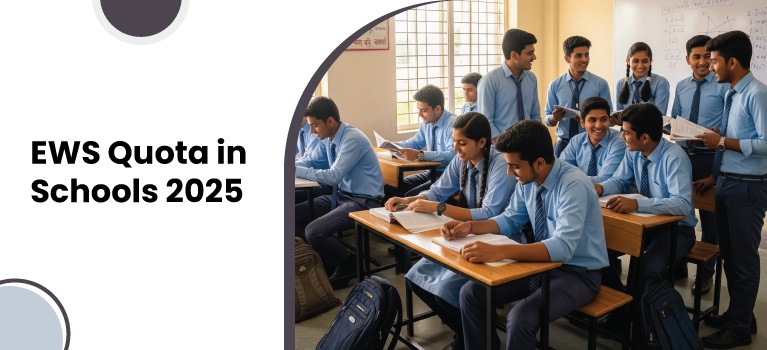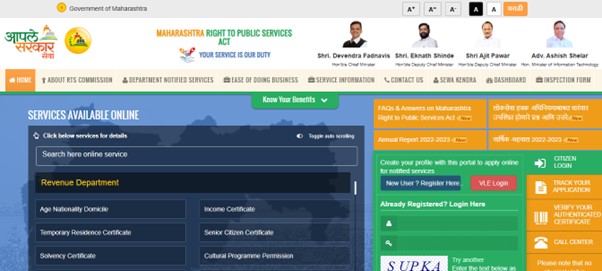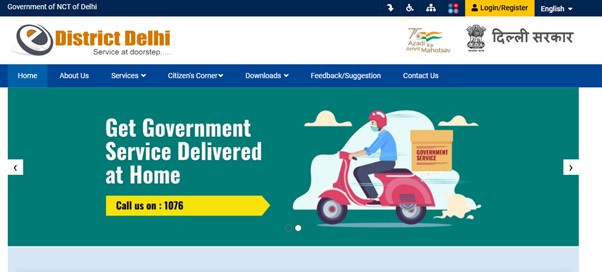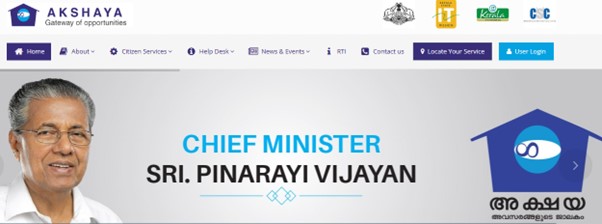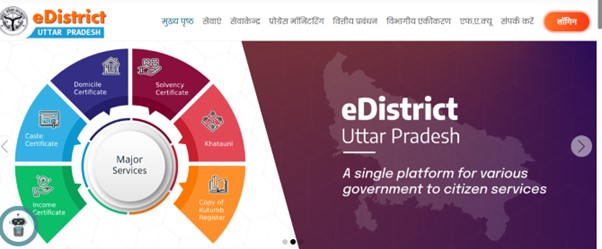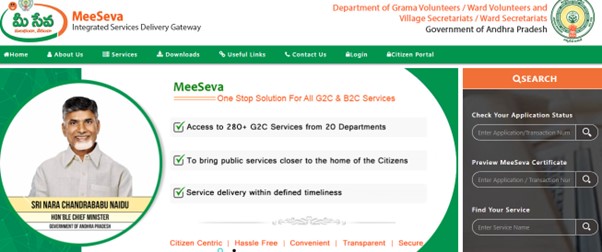The EWS quota in schools promotes social integration by enabling children from diverse backgrounds to study together, fostering equality and empathy. As we step into 2025, the EWS quota continues to evolve, with updated guidelines and eligibility criteria to make education inclusive. This article provides a detailed, student-friendly guide to understanding the EWS quota in schools for 2025, covering eligibility, application processes, challenges, recent updates, and more.
Key Objective: The EWS quota aims to bridge the gap in access to quality education, ensuring that financial constraints do not prevent children from attending reputable private schools.
Recent Updates for EWS Quota in 2025
The EWS quota has undergone significant updates in 2025, reflecting efforts to make the policy more inclusive and effective:
Delhi’s Income Ceiling Revision: In December 2024, the Delhi High Court approved a proposal by Lieutenant Governor V.K. Saxena to increase the annual income threshold for EWS quota eligibility in private schools from ₹2.5 lakh to ₹5 lakh, effective immediately. This change significantly expands eligibility, allowing more families from both reserved and general categories to benefit from the 25% seat reservation in private unaided schools. The decision addresses rising living costs in metropolitan areas, making quality education more accessible. (Source)
Delhi’s Streamlined Admission Process: For the 2025-26 academic session, Delhi’s Directorate of Education advanced the admission timeline. The application window opened on February 3, 2025, and closed on February 19, 2025. The first computerized lottery was scheduled for March 3, 2025, and admissions starting April 1, 2025. This earlier schedule ensures that EWS students begin classes alongside general category students, promoting integration. Over 44,000 children were selected from approximately two lakh applications, reflecting high demand and improved outreach efforts. (Source)
Maharashtra’s Medical College Quota: A new 10% EWS reservation has been introduced for private medical college seats in Maharashtra, sparking concerns about reduced availability of seats for the general category. Unlike in 2019, when a 25% seat increase was announced for government colleges to accommodate reservations, no corresponding seat increase has been declared this time. (Source)
Maharashtra’s Challenges and Legal Pushback: In 2025, Maharashtra faced controversy over private schools seeking exemptions from the EWS quota. Courts intervened to uphold the 25% reservation, reinforcing children’s rights to education. Additionally, Maharashtra became the first state to implement a 10% EWS quota in private unaided medical colleges, announced in July 2025, but this led to concerns about reduced general category seats without an increase in total seats. (Source)
Delhi’s Early Lottery Schedule: TThe 2025–26 admission cycle in Delhi started earlier, with the first lottery held on March 3. This allowed EWS students to begin classes alongside general category students from April 1.
Supreme Court Ruling: In August 2024, the Supreme Court upheld the mandatory 25% EWS quota in private schools, reinforcing the provisions of the RTE Act following a legal challenge in Maharashtra.
Haryana’s Strict Enforcement: In April 2025, Haryana’s Education Minister, Mahipal Dhanda, issued a stern warning to private schools, noting that 30% were non-compliant with the mandatory 25% EWS quota under the RTE Act. Schools failing to reserve Class 1 seats for EWS students now face strict action, including potential revocation of recognition. According to the state’s Ujjwal Portal reports that 70% of private schools have complied, and officials have been tasked with ensuring full enforcement. (Source)
Persistent Implementation Challenges: Despite progress, issues such as vacant EWS seats persist — for example, around 20% of seats remain unfilled annually in Delhi (~6,500 out of 35,000). Causes include low awareness, complex documentation processes, and resistance from some private schools, often citing minor errors or low general category admissions. Additional costs for uniforms, books, and extracurricular activities continue to burden EWS families, as the quota covers only tuition fees. (Source)
Social Integration and Support: Experts in 2025 emphasize the need for continuous support beyond primary education, advocating for government schools to become centers of excellence with trained professionals to aid EWS students’ emotional and social integration. Limited English exposure and lack of parental academic support remain challenges for EWS students’ academic performance. (Source)
Eligibility Criteria for EWS Quota in 2025
To qualify for the EWS quota, students must meet specific criteria, which vary slightly across states but are standardized by the central government for uniformity. Below is a breakdown of the eligibility requirements for 2025, including state-specific criteria for select states:
Central Government Criteria
Income Criteria: The family’s annual income must be less than ₹8 lakh.
Category: Candidates must belong to the General (unreserved) category and should not avail of reservations under SC/ST/OBC (Central list). OBCs listed in state but not in the central list may qualify.
Landholding Limit: The family must not own agricultural land exceeding 5 acres.
Residential Property Limit:
- Residential flat: Less than 1,000 sq. ft.
- Residential plot: Less than 100 sq. yards in notified municipalities or 200 sq. yards in non-notified municipalities.
Age Requirements (e.g., Delhi, 2025-26 academic session):
- Nursery: 3 to 5 years
- Kindergarten: 4 to 6 years
- Class 1: 5 to 7 years
- For Children with Special Needs (CWSN): Extended age limits (e.g., 3 to 7 years for Nursery).
Residency: Applicants must be residents of the state where they are applying, with valid proof like an Aadhaar card or domicile certificate.
State-Specific Eligibility Criteria
| State | Income Limit | Landholding Limit | Residential Property Limit | Additional Requirements |
| Delhi | ₹5 lakh per annum | ≤5 acres | Flat: <1,000 sq. ft.; Plot: <100 sq. yards (notified), <200 sq. yards (non-notified) | Must be a Delhi resident |
| Kerala | ₹4 lakh per annum | ≤2.5 acres; House plots: ≤20 cents (municipality), ≤15 cents (municipal corporation) | Flat: <1,000 sq. ft.; Plot: <100 sq. yards (notified), <200 sq. yards (non-notified) | None |
| Uttar Pradesh | ₹6 lakh per annum | ≤5 acres | Flat: <1,000 sq. ft.; Plot: <100 sq. yards (notified), <200 sq. yards (non-notified) | Minimum 12 years of schooling |
| Maharashtra | ₹8 lakh per annum | ≤5 acres | Flat: <1,000 sq. ft.; Plot: <100 sq. yards (notified), <240 sq. yards (non-notified) | Maratha community included under EWS |
| Andhra Pradesh | ₹8 lakh per annum | ≤5 acres | Flat: <1,000 sq. ft.; Plot: <100 sq. yards (notified), <200 sq. yards (non-notified) | None |
Note: The term “family” includes the applicant, parents, spouse, children, and siblings below 18 years. Properties owned across different locations are considered collectively for eligibility assessment.
Required Documents for EWS Quota Application
To apply for the EWS quota or obtain an EWS certificate, the following documents are generally required (may vary slightly by state):
- Proof of Identification: Aadhaar Card, Voter ID, PAN Card, or any government-issued ID.
- Income Certificate: Issued by a competent authority or self-declared affidavit verifying family income.
- Residence Proof: Electricity bill, water bill, telephone bill, gas connection bill, or domicile certificate.
- Asset Declaration: Documents proving land or property ownership (or lack thereof), such as land deeds or property records.
- Passport-Sized Photographs: Two recent photographs of the applicant.
- Self-Attested Affidavit: Declaring EWS status and income details.
- Educational Certificate: If applicable (e.g., required for school admissions in some states like Uttar Pradesh).
- Bank Statements: To verify income sources.
- Caste Certificate: To confirm General category status (if required).
Pro Tip: Ensure all documents are valid and self-attested to avoid rejection. Keep digital copies for online applications.
Also Read: Top Scholarships for EWS Students in India
Where to Apply for EWS Quota?
Applications for EWS quota admissions are typically submitted through state education department websites or designated portals. Below are some state-specific links and application methods for 2025:
- Delhi: Apply online under the “EWS/DG/Freeship Admissions” section.
- Maharashtra: Visit the School Education and Sports Department portal or local revenue offices.
- Andhra Pradesh: Apply via the Meeseva portal or at local revenue offices.
- Kerala: Submit applications through the Kerala Education Department portal or local revenue offices.
- Uttar Pradesh: Use the UP Basic Education portal or visit local revenue offices.
State-Specific School Education Departments Links
Offline Option: Visit the nearest revenue department or E-Mitra Kendra (in states like Rajasthan) for offline applications.
EWS Certificate Issuing Authorities
The Economically Weaker Section (EWS) certificate, also known as the Income and Asset Certificate, is a crucial document for availing the EWS quota in schools and other institutions under the Right to Education (RTE) Act, 2009. This certificate verifies that a candidate meets the income and asset criteria to qualify for the EWS reservation. The issuance of EWS certificates is strictly regulated, and only specific authorities are authorized to issue them across India. Below is a detailed and expanded overview of the EWS certificate issuing authorities, their roles, and additional state-specific details for 2025.
Authorized Issuing Authorities
The following officers, holding ranks at or above the specified designations, are authorized to issue EWS certificates as per the guidelines of the Department of Personnel and Training (DoPT), Government of India:
- District Magistrate (DM): The chief administrative officer of a district, responsible for overseeing certificate issuance and verification processes.
- Additional District Magistrate (ADM): Assists the DM and has the authority to issue EWS certificates in the DM’s absence or as delegated.
- Collector: In some states, the Collector (often synonymous with the DM) handles certificate issuance and coordinates with revenue departments.
- Deputy Commissioner (DC): Similar to the DM, the DC is a senior administrative officer in a district with authority to issue EWS certificates.
- Additional Deputy Commissioner (ADC): Supports the DC and is authorized to issue certificates, particularly in larger districts.
- Sub-Divisional Magistrate (SDM): Manages sub-divisions within a district and is a key authority for issuing EWS certificates at the sub-district level.
- Taluka Magistrate: Operates at the taluka (tehsil) level, issuing certificates in smaller administrative units, especially in rural areas.
- Executive Magistrate: Appointed to handle specific magisterial functions, including certificate issuance in certain jurisdictions.
- Extra Assistant Commissioner: Assists higher authorities in certificate issuance, particularly in states with complex administrative structures.
- Chief Presidency Magistrate: Found in presidency towns (e.g., Mumbai, Kolkata), responsible for certificate issuance in urban metropolitan areas.
- Additional Chief Presidency Magistrate: Supports the Chief Presidency Magistrate in issuing certificates in presidency jurisdictions.
- Presidency Magistrate: A judicial officer in presidency towns with authority to issue EWS certificates.
Key Restriction: Officers below the rank of Tehsildar or Sub-Divisional Officer (SDO) are explicitly not authorized to issue EWS certificates. This ensures that only senior revenue or administrative officials with verified authority handle the process, maintaining the certificate’s credibility.
State-Specific Details and Appeal Mechanisms
Maharashtra: Appeals against EWS certificate rejections can be submitted to the Assistant Commissioner within 30 days of the rejection. The Assistant Commissioner reviews the application, verifies documents, and may conduct field inquiries to resolve disputes. Maharashtra also allows online applications through the Aaple Sarkar portal, streamlining access to issuing authorities.
Delhi: The SDM is the primary issuing authority, and applications are processed through the e-District Delhi portal. Appeals can be escalated to the DM or ADM if issues arise, such as discrepancies in income or asset details.
Kerala: The Village Officer under the supervision of the Taluka Magistrate or SDM often facilitates the initial document verification, but the final certificate is issued by higher authorities like the SDM or DM. Applications can be submitted via the Akshaya portal.
Uttar Pradesh: The SDM or Tehsildar (under SDM supervision) issues certificates, with applications processed through the UP Revenue Department portal. Appeals are directed to the DM or Commissioner of the respective division.
Andhra Pradesh: The Mandal Revenue Officer (MRO), equivalent to a Taluka Magistrate, is a key issuing authority under the supervision of the Collector. Applications are processed via the Meeseva portal, with appeals handled by the District Collector.
Additional Information
- Verification Process: Issuing authorities verify income and asset details through submitted documents (e.g., income certificates, land records) and may conduct field visits to confirm eligibility. For instance, in rural areas, the Village Officer or Tehsildar may verify landholdings, while urban authorities rely on property records.
- Processing Time: The issuance process typically takes 10 to 15 days, depending on the state and verification complexity. Delays may occur if documents are incomplete or require field verification.
- Fees: The application fee ranges from ₹10 to ₹50, with some states charging an additional ₹2 court fee for affidavits. Online portals like Meeseva or Aaple Sarkar accept payments via UPI, net banking, or card.
- Digital Issuance: Most states now issue digitally signed EWS certificates, which can be downloaded from portals like services.india.gov.in or state-specific platforms. These certificates include a unique certificate number for tracking and verification.
- Appeals and Grievances: If an EWS certificate application is rejected due to errors or discrepancies, applicants can appeal to a higher authority (e.g., DM, Collector, or Assistant Commissioner). Supporting documents must be resubmitted, and a hearing may be scheduled to resolve the issue.
Tips for Applicants
- Contact the Right Authority: Verify the issuing authority for your district or taluka through the state’s revenue department website or local Tehsil office to avoid delays.
- Prepare Documents in Advance: Ensure all required documents (e.g., Aadhaar, income certificate, property records) are valid and self-attested to expedite verification process.
- Use Online Portals: Opt for online applications where available (e.g., Delhi’s e-District, Maharashtra’s Aaple Sarkar) for faster processing and tracking.
- Track Application Status: Use the application ID provided at the time of submission to monitor progress on state portals or contact the issuing authority for updates.
Also Read: Scholarships for class 10-12 passed students
Process of Obtaining EWS Certificates
The process to obtain an EWS certificate is straightforward and can be completed either online or offline, depending on the state. Here’s a step-by-step guide:
Online Process
- Visit the Official Portal: Go to the state’s revenue department or designated portal (e.g., Meeseva for Andhra Pradesh, services.india.gov.in for central services).
- Register/Login: Create an account or log in with existing credentials.
- Fill Application Form: Enter personal details, income, and property information.
- Upload Documents: Upload scanned copies of required documents (listed above).
- Pay Fee: Pay the application fee (₹10–₹50, plus ₹2 court fee in some states) via net banking, UPI, or other digital methods.
- Submit Application: Submit the form and note the application ID for tracking.
- Verification: Authorities verify documents and may conduct a field visit to confirm details.
- Download Certificate: Once approved (typically within 10–15 days), download the certificate from the portal or receive it via email/SMS notification.
Offline Process
- Visit the Revenue Office: Go to the local revenue department, Tehsil, or E-Mitra Kendra.
- Collect Application Form: Obtain the EWS certificate application form.
- Fill and Submit: Complete the form, attach photocopies of required documents, and submit with the processing fee.
- Verification: Authorities verify documents and may visit your residence.
- Collect Certificate: Receive the certificate within 10–15 days after approval.
Validity: EWS certificates are valid for one year from the date of issuance and must be renewed annually with updated income and asset documents.
Application Process for EWS Quota in Schools
The application process for EWS admissions in schools is streamlined and primarily online. Here’s a step-by-step guide for 2025, with a focus on Delhi as an example:
Online Application:
- Visit the official website of the state’s Directorate of Education (e.g., edudel.nic.in for Delhi).
- Navigate to the “EWS/DG/Freeship Admissions” section.
- Register and fill out the application form for the 2025-26 academic year.
Required Documents (as listed above).
Selection Process:
- A computerized lottery system selects candidates, ensuring transparency.
- Results are announced on the state education department’s website, with SMS notifications sent to registered mobile numbers within 24 hours. In Delhi, the first lottery for 2025 is scheduled for March 3, with admissions starting April 1.
Verification: Schools verify submitted documents to confirm authenticity before final admission.
Pro Tip: Apply early to avoid technical glitches, and contact helplines (e.g., Delhi’s 9818154069) for assistance.
Challenges Faced by EWS Applicants
Despite its noble intent, the EWS quota faces several hurdles:
- Vacant Seats: In Delhi, approximately 20% of EWS seats (around 6,500 out of 35,000) remain vacant annually due to low application rates, complex documentation requirements, or schools discouraging EWS admissions by citing low general category intake.
- Documentation Issues: Schools often demand additional documents like Aadhaar or address proof, which some families struggle to provide, leading to rejections.
- Financial Barriers Beyond Tuition: While tuition is free, parents must bear the costs of uniforms, books, and extracurricular activities, which can be burdensome.
- Resistance from Schools: Some private schools deny EWS admissions citing minor errors (e.g., spelling mistakes) or claim insufficient general category admissions to reduce their EWS obligations.
- Lack of Post-Elementary Support: The EWS quota is limited to Classes 1–8, leaving students without financial support for higher education, hindering their academic journey.
Social Impact of the EWS Quota
The EWS quota is more than just a policy – it’s a step toward social equity. By integrating students from diverse economic backgrounds, it fosters inclusivity and reduces societal divides. Students gain exposure to better infrastructure, qualified teachers, and peer diversity, which can enhance their academic and personal growth. However, the policy’s success depends on addressing implementation gaps, such as increasing awareness and simplifying the application process.
Tips for Indian Students Applying for EWS Quota
- Check State-Specific Criteria: Eligibility varies by state (e.g., ₹4 lakh income limit in Kerala vs. ₹5 lakh in Delhi). Visit your state’s education department website for details.
- Prepare Documents Early: Ensure all documents are valid and readily available to avoid last-minute rejections.
- Apply to Multiple Schools: Increase your chances by applying to several schools within your state’s EWS network.
- Stay Updated: Monitor official websites for lottery dates and results. In Delhi, check edudel.nic.in regularly.
- Seek Help: Use helplines or contact local NGOs for guidance on the application process.
Why the EWS Quota Matters in 2025?
The EWS quota is a lifeline for millions of Indian students dreaming of quality education despite financial constraints. With over 1,20,000 MBBS seats and countless school seats available under various quotas in 2025, the policy opens doors to prestigious institutions. However, its success hinges on addressing challenges like vacant seats and school resistance. As India aims to improve its education system, the EWS quota remains a cornerstone of inclusive growth, empowering the next generation.
EWS Quota in Schools – FAQs
What is the validity period of an EWS certificate?
The EWS certificate is valid for one year from the date of issuance. It must be renewed annually with updated income and asset documents.
Can OBC candidates apply for the EWS quota?
No, candidates availing SC/ST/OBC (Central list) reservations are not eligible. However, OBCs listed in state but not central lists may qualify in some states.
How long does it take to obtain an EWS certificate?
It typically takes 10–15 days after document verification, depending on the state and mode of application (online/offline).
What happens if my EWS certificate expires?
You must apply for renewal by submitting updated income and asset documents to the issuing authority. Check your state’s revenue department portal for the renewal process.
Can I use an MNREGA job card for EWS certificate verification?
Yes, an MNREGA job card can be used as proof of income for EWS certificate verification in some states.
What should I do if my EWS application is rejected?
Appeal to a higher authority, such as the Assistant Commissioner in Maharashtra, with corrected documents or necessary clarifications.
Is the EWS quota applicable beyond Class 8?
No, the EWS quota under the RTE Act applies only to Classes 1 to 8 in private schools. For higher education, the 10% EWS reservation applies to government jobs and institutions like IITs and IIMs.
